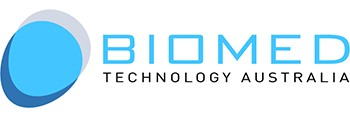Health Benefits Of Wearing Face Masks
Face masks have become a part of everyday life for most people over the past two and a half years with the prevalence of the COVID-19 pandemic.
A face mask acts as a physical barrier which aims to reduce transmission by limiting the spread of droplets. Masks have been proven to be extremely effective in limiting infection rates as it prevents the transmission of droplets and limits transmission of germs through contact between hands and mouths.
There are various types of face masks that have several health benefits. Here at Biomed, we offer a range of face masks ranging from reusable face masks through to medical grade face masks in a variety of materials and sizes to suit people with different needs. Our range of face masks include:
- Bioshield-05
- 3-layer face mask
- 5-layer face mask
- 7-layer face mask
- Antibacterial face masks
- Kids masks
We have a range of reusable face masks, with various properties such as being breathable, dust proof, antibacterial, provide deodorisation abilities, protection, and a filtering effect. At Biomed, our range of face masks come in a variety of sizes to suit men, women and kids.
Our face masks are made out of various fabrics and materials that suit people of various needs such as copper, lycra, eco-friendly nylon and more which utilise hypoallergenic materials which ensures the masks deliver on its health benefits and suits people with allergies.
Below are some of the main health benefits of wearing face masks:
- Limit transmission of viruses and illnesses
Wearing face masks reduces the likelihood of infection of viruses and illnesses such as COVID-19 as the face mask acts as a barrier to prevent droplets from being transferred to other people.
In many instances, people may not be aware that they are contagious with a virus or illness such as COVID-19 until days after they have been infected. If someone who has been infected with a virus, such as COVID-19, wears a mask when in public spaces or around other people they have a significantly reduced risk of spreading the virus to other people.
- Protect yourself against viruses and illnesses
Utilising face masks is a great way to protect yourself from contracting a virus or illness. Wearing a mask with multiple layers, such as a 3, 5 or 7 layer mask, will assist in limiting the chance of droplets coming into contact with the person.
Face masks are most effective when both the individual and others are wearing a face mask to both protect yourself and limit transmission, although throughout the pandemic it has been proved that with at least one person wearing a face mask, rates of transmission and infection reduce drastically.
- Utilise a face mask as a hygienic barrier
Wearing a face mask is a great option for reducing the likelihood of spreading or contracting viruses, not only during the pandemic, as they are an effective and hygienic barrier which provides several health benefits.
Wearing a face mask in a high risk setting such as a hospital or aged care centre is beneficial for the health of all people to prevent transmission and infection rates. Before the COVID-19 pandemic, many health professionals utilised face masks and reusable face masks in Australia to prevent catching viruses from their patients and prevent passing anything on to their patients, which is especially beneficial for people who are immunocompromised or who have underlying health conditions.
Face masks have become common for people to wear when they suffer from allergies to limit their exposure to external environmental aspects such as dust or pollen. If you have been searching for reusable face masks Australia, at Biomed we have a range of face masks which incorporate a range of benefits to suit your needs. Our friendly team of medical fabrics and materials experts can assist you with any questions you may have about the medical textiles and fabrics we use!
Gain health benefits from face masks at Biomed!
Using face masks are extremely beneficial for your health and safety as well as for the health and safety of the people around you. Specifically in times where COVID cases are increasing, it is beneficial to reduce the spread of infection.
At Biomed, our mission as a professional fabric manufacturing company is to create and produce superior fabric manufacturing for high-quality face masks, medical and health masks, and reusable face masks in Australia. Therefore, we ensure our business operations always align with our ISO 9001 certification for quality management.
Our dedication to strict Australian medical fabric manufacturing standards demonstrates our products’ reliability and commitment to providing our customers superior products that offer a high level of comfort by minimising skin irritations, alongside antibacterial and hypoallergenic properties for safety and comfort.
At Biomed, we have a longstanding partnership with ResMed CPAP Supplies to supply medical textiles for their products, which have offered superior patient comfort for decades. To find out more information on our full range of CPAP accessories, various face masks and other medical fabrics, please contact our team of Biomed medical fabrics and materials experts by calling (02) 9758 3855.


